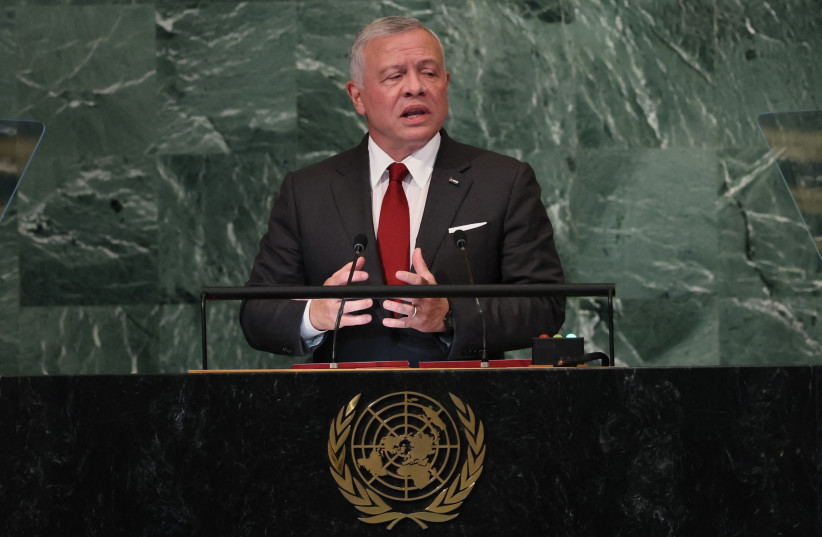King Abdullah and Saudi Crown Prince Mohammed bin Salman met on Thursday at the Royal Palace in Jeddah. They discussed bilateral ties and regional issues, according to Jordanian state media.
“King Abdullah and Crown Prince Mohammed expressed pride in the strong, historical relations between the two countries and peoples, stressing keenness on expanding cooperation in all fields,” Jordan’s Petra News said.
A new era of Diplomacy
This is the latest important meeting that the Saudis have held in the region. It is part of a new era of diplomacy and Riyadh is the center of these developments. Saudi Arabia sent its foreign minister to Damascus this week, an important symbol of normalization with the Syrian regime. The Saudis have also reconciled with Iran in a deal brokered by China and Iraq.
In addition, talks in Oman appear to be helping end the war in Yemen where Saudi intervened in 2015. Saudi Arabia hosted Palestinian Authority President Mahmoud Abbas this week as well. Hamas leaders were also in Saudi Arabia for a religious pilgrimage.

Israel’s Foreign Minister Eli Cohen traveled to two Muslim countries this week, Azerbaijan and Turkmenistan. AL-Arabiya in the Gulf noted that Cohen said a visit to Saudi Arabia was “on the table.” US Senator Lindsey Graham was also in Israel this week and discussed possible Israel-Saudi ties.
Prime Minister Benjamin Netanyahu has expressed support for peace with Riyadh. He has also warned Riyadh about Iran. It is in this context that Saudi’s meeting with the Jordanians took place. The Jordanian king also performed Umrah, the pilgrimage to Mecca, while in Saudi Arabia.
According to Jordanian media, the King “and the Saudi crown prince noted the need to maintain coordination and consultation on issues of mutual concern, in service of shared interests, as well as Arab and Islamic causes.”
The King discussed Saudi’s role in promoting joint Arab “action…, commending Saudi Arabia’s efforts to host the 32nd Ordinary Session of the Council of the League of Arab States at the Summit Level in Riyadh next month. The meeting covered regional and international developments, foremost of which are the Palestinian cause and crises in the region.”
Jordan says it continues to support the Palestinians and hopes to see increased Arab efforts to create support for the Palestinians as part of a way “towards relaunching negotiations between the Palestinians and the Israelis for just and comprehensive peace, on the basis of the two-state solution.”
The meetings in Jeddah included Jordan's Prince Feisal bin Al Hussein, Prince Talal bin Muhammad, and Prince Ghazi bin Muhammad, as well as Deputy Prime Minister and Foreign Minister Ayman Safadi and Director of the Office of His Majesty Jafar Hassan.
The meeting received coverage in Jordan and the Gulf. The Jordan-Saudi meeting is important because it shows how Saudi Arabia is positioning itself in leadership in the Arab world again. Saudi Arabia has had a leadership role in the region and the Muslim world for many decades, however, the last ten years involved many disputes and tensions that often saw Riyadh playing catch up or responding to regional issues, rather than leading.
For instance, after Saudi Arabia intervened in Yemen it found it was facing increasing Iranian trafficking of missiles and drones to the Houthis. This became an uphill battle and Saudi and UAE views on Yemen diverged.
In addition, the Qatar crisis in 2017 led to another round of controversies in the region. Riyadh has seen more critique from the US and Western media in recent years, some of it driven by Doha. Conflicts from Syria to Yemen also gave countries like Turkey more influence in the Middle East and Iran has spread its influence over Syria, Lebanon, Yemen and Iraq. All of this created challenges for Riyadh. Now Saudi Arabia appears back in the driver’s seat of diplomacy in the region. This also includes high-level meetings with the US and China in the last year.
